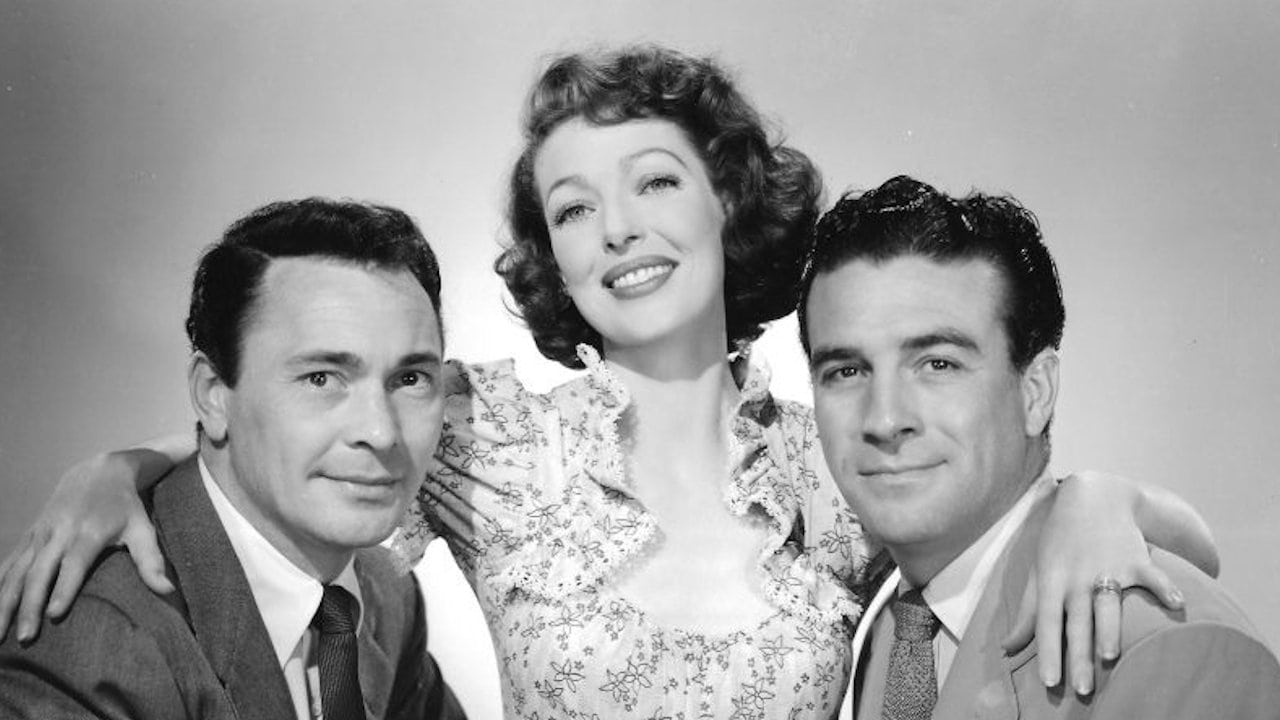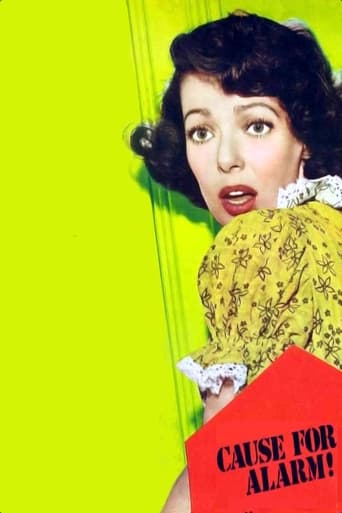

Far from Perfect, Far from Terrible
... View MoreEasily the biggest piece of Right wing non sense propaganda I ever saw.
... View MoreThe movie is wonderful and true, an act of love in all its contradictions and complexity
... View MoreThis movie tries so hard to be funny, yet it falls flat every time. Just another example of recycled ideas repackaged with women in an attempt to appeal to a certain audience.
... View MoreIn addition to a really good performance from Loretta Young as the increasingly desperate Ellen Jones, I give great credit to director Tay Garnett for the very effective build-up of suspense, which shifts gears partway through the movie but doesn't miss a beat in doing so. As Ellen, Young is playing a woman trying to nurse her gravely ill husband back to health. Unfortunately, George Jones' poor health has led him to become increasingly paranoid, and he's come to the conclusion that Ellen and his doctor are in love and trying to murder him. Ellen tries her best to "put on a happy face" as she deals with her increasingly difficult spouse, and then discovers that a letter she mailed for him was actually directed to the District Attorney, and accused her and the doctor of planning his murder. (As an added complication, George actually dies after the letter is sent.) The movie then shifts from George's paranoia to Ellen's desperation, as, after George dies, she frantically tries to get the letter back before it reaches the DA, but with every more desperate attempt to get the letter she seems to set herself up as more guilty. Where and how will this end?It's a very well done movie, with a lot of little things that gave it a feel of authenticity: the nosy neighbours, and the neighbourhood kid who pretends to be Hopalong Cassidy showing up at Ellen's house looking for cookies. The opening scenes, explaining how George and Ellen met and their mutual relationship with Dr. Graham, went on perhaps a bit too long. Then, at the end, there is an expected twist (because you always expect a surprise twist in a movie like this) but the expected twist wasn't the twist I was expecting, and it provided a somewhat humorous (and perhaps, therefore, slightly out of place) ending to an overall very enjoyable film.
... View MoreThis 1951 Loretta Young clinker must have gotten Ms. Young to seriously start thinking about television. If she continued to make movies as awful as this one, moving to television was the best possible decision that she could have made.In this one, her seriously ill husband, Barry Sullivan, is convinced that Loretta is going to do him in. He writes a letter to the District Attorney directly linking Loretta to his death. Loretta spends the rest of the movie in a complete frenzy as she valiantly tries to retrieve the letter.It is just nerve racking to see Loretta Young subjected to this nonsense. Did anyone among the writers ever think that a good defense attorney could bring out how off-the-wall her husband was?
... View MorePoor Loretta Young didn't have much luck with husbands in small towns/suburbia in the movies, did she? They were all trying to kill her! Here it's Barry Sullivan, her paranoid war veteran husband, with a heart condition, who wants her dead. He thinks that Loretta's longtime doctor friend Bruce Cowling (playing the bland hero type), in love with her, is conspiring with Loretta to kill him, so he tries to get in first. This sparks a chain of bad events for Young, and director Tay Garnett (best known for noir "The Postman Always Rings Twice") ramps up the suspense nicely in this brief little potboiler. Obviously low budget, Garnett uses this to his advantage in stripping the action bare down to the frantic Young. While it's no classic in the noir cycle, it's worthy of your time.
... View MoreDecent enough thriller that nevertheless suffers a gap in exposition. In spite of reviewer Jacobfam's highly revealing analytic, the narrative jump from a healthy if quirky George (Sullivan) to a bed-ridden, full-blown paranoic is simply too visually abrupt to be convincing-- and this remains the case despite the clues that Jacobfam so brilliantly assembles. After all, this is a movie and not a literary assignment . The way the narrative stands, it's as if the producers wanted to get rid of co-star Sullivan as quickly as possible so the movie would become exclusively Young's. And admittedly, the last three-fourths do become hers, in spite of the shadow George casts.Where the film works well is showing how innocent daily occurrences transform into a pattern of guilt once suspicion takes over. Ellen (Young) sees the trap closing around her that George has so cleverly laid, but there is little she can do unless she retrieves that incriminating letter. It's that pursuit that generates audience involvement. It's simply one frustration after another—a pesky salesman, a nosy neighbor, but above all, a quirky mailman (Bacon), who are sealing her fate. The script cleverly turns the mailman into just the kind of character who would stand on an unthinking rule rather than a dose of common sense. Meanwhile, the letter floats tantalizingly just beyond her reach. Some reviewers fault Young's emotional performance during the pursuit. But put yourself in her place. Her whole life hangs in the balance because of that letter. Given what's at stake, her emotional pitch seems about right. In passing—Can't help noticing similarity between this film and 1952's Beware, My Lovely, both scripted by Mel Dinelli, and both concerning a housewife trapped by an unbalanced man. But, notice in Beware how well the unbalanced man's (Robert Ryan) background is visually sketched in. Unlike Cause, there are no developmental gaps, an inclusion that makes for a more persuasive and effective narrative. Also, I recall an episode of Hitchcock Presents where a woman frantically tries to retrieve an incriminating letter. But when the missive is returned for insufficient postage, a good Samaritan maid supplies the missing postage!-- A typical touch of Hitchcock irony. Anyway, Cause remains a decent, if flawed, 75 minutes of entertainment.
... View More